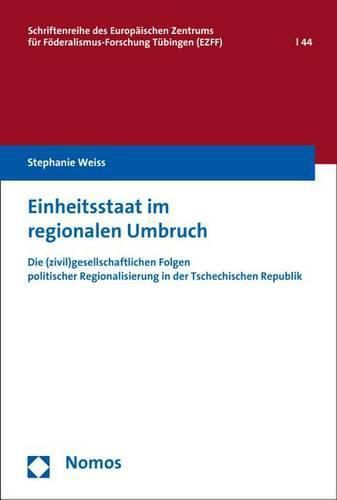Readings Newsletter
Become a Readings Member to make your shopping experience even easier.
Sign in or sign up for free!
You’re not far away from qualifying for FREE standard shipping within Australia
You’ve qualified for FREE standard shipping within Australia
The cart is loading…






In the Czech Republic, political regions were introduced in the year 2000.This study sets out to inquire into the effects of regionalization on organised civil society. The analysis is designed as a comparative case study focusing on two regions and two policies, namely tourism policy and social policy, which have been partially devolved to the meso-level. By developing a new instrument for analysis and based on a qualitative research method it gives new insights into civil societal action and the way civil society is organized and thus goes beyond previous research efforts. The comparison shows that both the studied policies and political actors resp. actor networks make a difference to civil society’s mobilization and scope of action, thus confronting the socioeconomic model of civil societal development. Moreover, the results challenge the optimistic hypothesis that the EU framework and funds promote deeper societal participation and encourage the founding of new civil society organisations.
$9.00 standard shipping within Australia
FREE standard shipping within Australia for orders over $100.00
Express & International shipping calculated at checkout
In the Czech Republic, political regions were introduced in the year 2000.This study sets out to inquire into the effects of regionalization on organised civil society. The analysis is designed as a comparative case study focusing on two regions and two policies, namely tourism policy and social policy, which have been partially devolved to the meso-level. By developing a new instrument for analysis and based on a qualitative research method it gives new insights into civil societal action and the way civil society is organized and thus goes beyond previous research efforts. The comparison shows that both the studied policies and political actors resp. actor networks make a difference to civil society’s mobilization and scope of action, thus confronting the socioeconomic model of civil societal development. Moreover, the results challenge the optimistic hypothesis that the EU framework and funds promote deeper societal participation and encourage the founding of new civil society organisations.